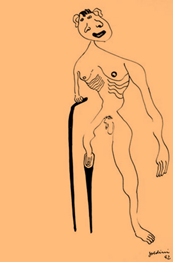My name is John Fuller. I am nine and twenty years of age, born in the year of our Lord 1370, the son of the learned musician and the youngest of twelve children – though the Lord in his wisdom was pleased to take five brothers and two sisters back to the fold. After a grave accident, I no longer possess the use of my hands. Any inaccuracies in this document are not the fault of the scribe, who enjoys a high reputation, but of my own mind. My pain is not inconsiderable. However, I will continue frankly, in as orderly a fashion as I am able, so that these words may accompany my confession to the honorable Vicar of Saint Stephen’s.
My story begins as God knitted me in the womb.
Maybe it’s because I’ve spent so much time over the past few months immersed in medieval theology courtesy of Dante Alighieri. Maybe it’s because I can put myself in the story in all three key roles. Maybe it’s because there’s so much crammed in these fourteen pages – sorrow, love, joy, longing, heartbreak, loneliness, alienation, sacrifice, guilt, stoicism bordering on learned helplessness, a harsh and compassionless justice. Whatever the reason: I absolutely loved this story.
Because all the elements of the story fit so well together, it’s impossible to discuss in detail without spoilers; the first paragraph itself is a kind of spoiler, in fact. I haven’t found it online, so I’ll just make some general observations and encourage everyone to find a copy of BASS 2014 (or back issue #78 of Image, a literary journal with a “commitment to artistic excellence and religious truth… poised to make a lasting impact on the future of our national culture”) to see for yourself how McNett weaves together a music teacher, his wife, his student, and the often inscrutable Will of God.
I also admire the process she went through to get here. In an interview with Dan Klefstad of NPR affiliate WNIJ, she explains how she went from a story that felt too “Glee” to the 14th century via research on the history of vocal instruction. That writer’s decision to move the story from a contemporary choir to the 14th century was genius, and allowed so much else to be brought in: socially moderated rules of conduct which, although passé today, are based on aspects of human relationships, emotions, and desires that have not changed in six hundred years, and the overwhelming pressure of religion.
To get the setting and diction right, she read several period texts:
One was a diary written by a man who had a large family; within a month they all died except him.
“I don’t know if it was to the Plague or what happened,” McNett says. “But with every death he gave thanks to God or `Divine Providence’ and so forth. There was no bitterness and almost no sorrow, just complete acceptance.” McNett says she’s not a religious person, but was deeply moved by these accounts. “So I wanted to include at least one person in the story who had that faith.”~~Molly McNett
John Fuller has more faith on his worst day than most of us do all our lives. Except for one bad moment; yet as for many of us, it’s one bad moment on which everything turns. And it’s the skill of the story that makes me wonder if all that faith is really such a good idea: doesn’t it prevent change? Doesn’t it leave him mired in the past, in rage buried underneath every “Praise be”?
Ken Nichols at Great Writers Steal (one of my favorite craft-oriented writer’s blogs) [that, sadly, no longer exists, but once did] points out how carefully the story is focused. I’ve always found historical fiction to be problematic, but as Ken points out, “McNett doesn’t focus too closely on the clothing, language, food, science or customs of her specific time and place. Instead, she keeps our attention on what we share with John Fuller, Katherine and Olivia.” He’s absolutely right: what’s important about the setting is the belief system and the emotional lives of the characters, not what anyone’s wearing. The story does a great job of drawing us into those elements.
And those elements are why the story must be set in the 14th century; a contemporary setting wouldn’t make sense. John wouldn’t accept his wife’s vow of celibacy, and/or he’d hop right into bed with his student; in either case, the story would have to be very different. It’d be the story I’ve read a hundred times. This one’s a lot more interesting. Though the mechanisms are less familiar, the story is generated by fundamental motivations I understand. It’s a kind of defamiliarization.
Some stories are highly visual; this one is highly aural. John remembers two sounds from his childhood, one ugly and one beautiful: the leper’s rattle, and the song of the nightingale, his first encounter with what Jerome of Moravia called “la pulchra nota,” the beautiful note. When his wife labors with their children, she makes such a racket the midwife resorts to stuffing her ears with cotton. And there is another encounter with la pulchra nota, as one of his singing students, and a sweet young thing at that, achieves the perfect note:
I would like to end my story at this moment. I would like to linger here at the very crux of joy, where the note, and these words, were as one to me.
But I cannot. I then understood something about music that I had not learned from my father, or Jerome of Moravia, or Isidore of Seville. La pulchra nota the is the moment of beauty absolute, but what follows – a pause, however small – is the realization of its passing. Perhaps no perfection is without this silent realization.
After ecstasy, there’s nowhere to go but down (remember that next time a blushing bride declares her wedding day “the happiest day of my life” – because she might just be, cursedly, right) so it’s no surprise when Olivia’s voice sounds less sweet on future notes.
Steve Almond gives writing advice along the lines of “it’s your job as a writer to put your characters through hell” and McNett certainly does give John a full range of emotional experiences: contentment, grief, sexual frustration, desire, joy, disappointment, rage, guilt, and finally, a kind of passive acceptance that seems saintly – or insane. Perhaps a touch of both. Each twist felt very authentic to me; it wasn’t something written to create a plot, but a pitch-perfect (sorry) recording of an emotional life.
Through the story, I was pulling for John, and that’s part of the writer’s job, too (“give the reader someone to care about”). But I was always aware: John’s wife has her own story as well, as does his student. It’s easy to create a hero among villains – that’s soap opera – but to blend together three characters with elements of each – three flawed noble souls who can’t quite get outside themselves to see another’s needs – is where a real story happens.
[Post originally written in Fall 2014 as part of the BASS 2014 read]
I see this story was also selected for a Pushcart 2015 Prize. I couldn’t agree more.




 The Soros sisters’ eyes are the blue of lunar seas, their complexions cloud white, and their identical pageboys well-bottom black. The term “beautiful” has never been applied sincerely to either sister, though Ivy, the youngest by two years, might be deemed the better looking, because she has detectable cheekbones and a waist narrower than her hips. Isabel has very little in the way of body fat, but his square shaped from almost any angle. Even her face is square shaped. It’s been that way since birth.
The Soros sisters’ eyes are the blue of lunar seas, their complexions cloud white, and their identical pageboys well-bottom black. The term “beautiful” has never been applied sincerely to either sister, though Ivy, the youngest by two years, might be deemed the better looking, because she has detectable cheekbones and a waist narrower than her hips. Isabel has very little in the way of body fat, but his square shaped from almost any angle. Even her face is square shaped. It’s been that way since birth.

 We called her God because she wrote a poem about how Caleb Newton ejaculated prematurely the night she slept with him, and because she shared the poem with her friends.
We called her God because she wrote a poem about how Caleb Newton ejaculated prematurely the night she slept with him, and because she shared the poem with her friends.












 The Djuvanovics came to live with us after the flood because they had nowhere else to go. Well, that’s not really true. They had plenty of places to go, they had the whole world to go to, but they came to us, and that was because of Reverend Judy. It was her idea, and Reverend Judy’s a very persuasive person. I suppose that’s a good quality in a minister, but I have to say I find it somewhat grating. The Djuvanovics had to go somewhere because the house was condemned. One wall had buckled and the roof had caved in. Everyone said how lucky it was that they weren’t all killed when the house collapsed, but they were not killed. Although they did lose pretty much everything they owned.
The Djuvanovics came to live with us after the flood because they had nowhere else to go. Well, that’s not really true. They had plenty of places to go, they had the whole world to go to, but they came to us, and that was because of Reverend Judy. It was her idea, and Reverend Judy’s a very persuasive person. I suppose that’s a good quality in a minister, but I have to say I find it somewhat grating. The Djuvanovics had to go somewhere because the house was condemned. One wall had buckled and the roof had caved in. Everyone said how lucky it was that they weren’t all killed when the house collapsed, but they were not killed. Although they did lose pretty much everything they owned.
![See the original piece, and other photographs from Tina Modatti, at the MOMA website Tina Modatti: "Telephone Wires, Mexico" [modified] (1925)](https://sloopie72.files.wordpress.com/2014/10/beattie-header.png?w=350&h=199)
 A funny thing happened while I was trying to document my annoyance at the lack of sense: it started to make sense. Of course, that’s partly because the text itself starts to make more sense as the context and backstory becomes clearer. But a lot of it is just being willing to tolerate confusion, see what happens, and read it again, sentence by sentence.
A funny thing happened while I was trying to document my annoyance at the lack of sense: it started to make sense. Of course, that’s partly because the text itself starts to make more sense as the context and backstory becomes clearer. But a lot of it is just being willing to tolerate confusion, see what happens, and read it again, sentence by sentence.